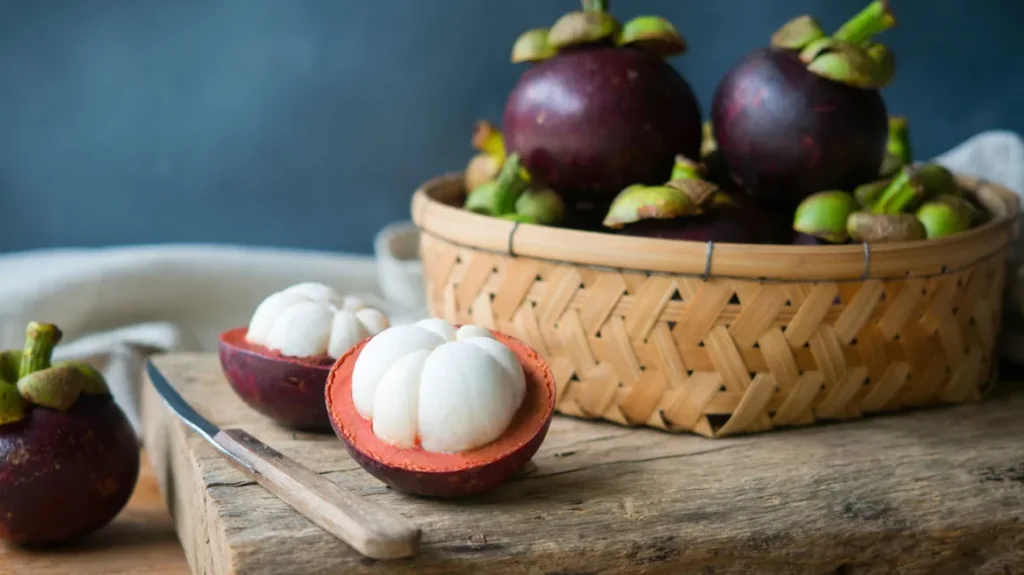
Picture this: I’m standing in a bustling market in Thailand, the air thick with the sweet aroma of ripe mangoes, the vibrant hues of dragon fruit catching my eye, and the tangy scent of fresh pineapple teasing my senses. As I bite into a juicy slice of papaya, I can’t help but wonder—could these tropical treasures be more than just a delightful treat? Turns out, they are. Tropical fruits aren’t just bursts of flavor; they’re nutritional powerhouses with benefits that might surprise you. From boosting immunity to enhancing mental clarity, these fruits offer a world of health perks. Let’s dive into the vibrant, juicy world of tropical fruits and uncover their hidden benefits, backed by science and sprinkled with stories to keep you hooked.
What Makes Tropical Fruits So Special?
Tropical fruits grow in warm, sunny climates near the equator, soaking up the sun’s energy to produce vivid colors, bold flavors, and dense nutrients. Think mangoes, pineapples, papayas, guavas, and dragon fruit—each one a unique blend of vitamins, antioxidants, and enzymes. Unlike temperate fruits like apples or berries, tropical fruits often boast higher concentrations of certain nutrients due to their growing conditions. According to Healthline, these fruits are packed with vitamins C and A, fiber, and bioactive compounds that support overall health. My first encounter with a starfruit in Costa Rica was a revelation—not only was it refreshingly tart, but I later learned it’s a low-calorie source of fiber and antioxidants. Let’s explore why these fruits deserve a spot in your diet.
Immune-Boosting Powerhouses
One of the most surprising benefits of tropical fruits is their ability to supercharge your immune system. Take the guava, for instance. During a trip to India, I watched locals devour guavas like apples, seeds and all. I was skeptical until I tried one and learned it has more vitamin C than an orange—up to four times as much, according to WebMD. Vitamin C is a key player in strengthening your immune response, helping your body fend off infections. Pineapples, too, are rich in vitamin C and contain bromelain, an enzyme with anti-inflammatory properties that may reduce the severity of colds. Adding a few slices of pineapple to your morning smoothie could be your ticket to fewer sick days.
- Guava: Up to 600% of your daily vitamin C needs in one fruit.
- Pineapple: Contains bromelain, which may reduce inflammation and boost immunity.
- Papaya: Loaded with vitamin C and antioxidants like lycopene.
Heart Health Heroes
Your heart deserves some tropical love, and these fruits deliver. Mangoes, for example, are not just a sweet indulgence; they’re rich in potassium, magnesium, and antioxidants like quercetin, which support healthy blood pressure and reduce heart disease risk, as noted by the American Heart Association. I remember sharing a mango lassi with a friend in Mumbai, blissfully unaware that the fruit was helping regulate my cholesterol levels. Passion fruit, with its high fiber content, also helps lower bad cholesterol, while bananas provide potassium to keep your heart rhythm steady. Next time you’re craving a snack, swap chips for a banana or mango slice—your heart will thank you.
- Mango: Packed with heart-protective antioxidants and potassium.
- Passion Fruit: High in fiber to reduce cholesterol levels.
- Banana: A potassium powerhouse for blood pressure regulation.
Digestive Health Dynamos
Tropical fruits are a godsend for your gut. Papaya, for instance, contains papain, an enzyme that aids digestion by breaking down proteins. I learned this the hard way after overindulging in spicy tacos in Mexico—sipping papaya juice afterward was a game-changer for my stomach. According to Medical News Today, papaya’s fiber and water content also promote regular bowel movements. Similarly, pineapples’ bromelain helps digest proteins, while dragon fruit’s prebiotic fiber feeds your gut’s good bacteria. If you’re prone to bloating or irregularity, adding these fruits to your diet could be a delicious fix.
- Papaya: Papain enzyme aids protein digestion.
- Pineapple: Bromelain supports efficient digestion.
- Dragon Fruit: Prebiotic fiber nurtures gut microbiome.
A Natural Glow for Your Skin
Want radiant skin without breaking the bank? Tropical fruits have you covered. During a beach vacation, I noticed how locals used mango masks to soothe sun-kissed skin. Mangoes are rich in vitamins A and C, which promote collagen production and protect against UV damage, as explained by Harvard Health. Papaya’s enzymes exfoliate dead skin cells, giving you a natural glow, while coconut water—yes, it’s a fruit!—hydrates from within. I started drinking coconut water daily during a summer heatwave, and my skin felt noticeably softer. Blend these fruits into smoothies or apply them as DIY masks for a spa-like treat at home.
- Mango: Vitamins A and C for collagen and UV protection.
- Papaya: Exfoliating enzymes for smoother skin.
- Coconut Water: Hydrates for a dewy complexion.
Mental Clarity and Mood Boosters
Did you know tropical fruits can lift your mood and sharpen your mind? Bananas, for instance, are rich in vitamin B6, which helps produce serotonin and dopamine—neurotransmitters that regulate mood. A study from Psychology Today suggests that regular banana consumption may reduce symptoms of depression. Meanwhile, pineapples contain manganese, which supports brain health, and dragon fruit’s antioxidants protect against cognitive decline. I’ve found that snacking on bananas during a hectic workday keeps me calm and focused. Try keeping a stash of tropical fruits at your desk for a mid-afternoon pick-me-up.
- Banana: Vitamin B6 for mood-regulating neurotransmitters.
- Pineapple: Manganese for cognitive function.
- Dragon Fruit: Antioxidants to protect brain cells.
Weight Management Allies
If you’re watching your waistline, tropical fruits can be your secret weapon. Most are low in calories but high in fiber, keeping you full longer. Take dragon fruit: one cup has just 60 calories but provides 7 grams of fiber, according to Verywell Fit. During a health kick, I swapped sugary snacks for dragon fruit slices, and the cravings vanished. Papaya and pineapple are also low-calorie options that satisfy sweet tooths without the guilt. Plus, their natural sugars provide a steady energy boost, unlike processed desserts. Blend them into a smoothie bowl for a filling, nutrient-packed meal.
- Dragon Fruit: Low-calorie, high-fiber for satiety.
- Papaya: Low in calories, high in water content.
- Pineapple: Natural sweetness to curb sugar cravings.
Comparison Table: Nutritional Power of Tropical Fruits
Tropical Fruit Nutritional Breakdown
| Fruit | Key Nutrients | Calories (per cup) | Unique Benefit |
|---|---|---|---|
| Mango | Vitamins A, C, potassium, quercetin | 99 | Heart health, skin radiance |
| Pineapple | Vitamin C, manganese, bromelain | 82 | Digestion, immunity |
| Papaya | Vitamin C, A, papain, fiber | 62 | Digestion, skin health |
| Guava | Vitamin C, fiber, antioxidants | 112 | Immunity, cholesterol reduction |
| Dragon Fruit | Fiber, antioxidants, vitamin C | 60 | Weight management, gut health |
| Banana | Potassium, vitamin B6, fiber | 90 | Mood boost, heart health |
This table highlights why tropical fruits are nutritional all-stars, each bringing something unique to the table. Whether you’re aiming for better digestion or a mood lift, there’s a fruit for you.
Antioxidant Abundance for Long-Term Health
Tropical fruits are bursting with antioxidants, which combat free radicals and reduce the risk of chronic diseases. Mangosteen, a lesser-known gem, is dubbed the “queen of fruits” for its high levels of xanthones, antioxidants linked to anti-cancer properties, per PubMed. I tried mangosteen during a trip to Southeast Asia, and its sweet-tart flavor was unforgettable. Similarly, dragon fruit’s betalains protect against oxidative stress, while guava’s lycopene may lower cancer risk. Incorporating these fruits into your diet could be a tasty way to invest in long-term health.
Energy Boost Without the Crash
Unlike energy drinks or sugary snacks, tropical fruits provide sustained energy thanks to their natural sugars and fiber. Bananas, for example, are a favorite among athletes for their quick-release carbs and potassium, which prevent muscle cramps, as noted by Mayo Clinic. I started eating a banana before morning runs, and the difference in my stamina was noticeable. Mangoes and pineapples also offer a steady energy release, making them perfect for pre-workout snacks or afternoon slumps.
How to Incorporate Tropical Fruits Into Your Life
Ready to reap these benefits? Here are practical ways to add tropical fruits to your daily routine:
- Smoothies: Blend mango, pineapple, and banana with spinach for a nutrient-packed breakfast.
- Salads: Toss dragon fruit or papaya into a green salad for a sweet twist.
- Snacks: Keep guavas or bananas on hand for a quick, healthy bite.
- Desserts: Use coconut water in popsicles or mango in homemade sorbet.
- Skincare: Mash papaya for a DIY face mask or use mango pulp for a hydrating scrub.
Pro tip: Buy fresh when possible, but frozen tropical fruits retain most nutrients and are perfect for smoothies, according to Cleveland Clinic.
FAQ: Your Tropical Fruit Questions Answered
Q: Are tropical fruits high in sugar?
A: Tropical fruits contain natural sugars, but their fiber slows absorption, preventing blood sugar spikes. For example, a cup of mango has about 23 grams of sugar but 3 grams of fiber, making it a balanced choice when eaten in moderation.
Q: Can I eat tropical fruits if I’m on a low-carb diet?
A: Some, like dragon fruit and guava, are lower in carbs (7–12 grams per cup). Pair them with protein or healthy fats to stabilize blood sugar.
Q: Are there any risks to eating tropical fruits?
A: Overeating can lead to excess sugar intake, so stick to 1–2 servings daily. Also, some people may be allergic to fruits like mango or pineapple—consult a doctor if you experience symptoms.
Q: How do I pick ripe tropical fruits?
A: Look for vibrant colors and slight give when gently squeezed. For example, a ripe mango smells sweet at the stem, while a ripe pineapple has a golden hue and sweet aroma.
Q: Can I use tropical fruits in cooking?
A: Absolutely! Grill pineapple for a caramelized dessert, add mango to salsas, or use guava in jams for a tropical twist.
Conclusion: Embrace the Tropical Advantage
Tropical fruits are more than just a delicious escape to paradise—they’re a gateway to better health, glowing skin, and a happier mood. From the immune-boosting power of guava to the digestive magic of papaya, these fruits pack a punch that’s hard to ignore. My journey through tropical markets and kitchens has shown me that these vibrant gems can transform your diet and lifestyle with minimal effort. Whether you’re blending a smoothie, snacking on a banana, or experimenting with a papaya face mask, the benefits are as diverse as the fruits themselves.
So, what’s next? Head to your local market or grocery store and grab a few tropical fruits to try. Start small—maybe a mango smoothie or a dragon fruit salad—and notice how your body responds. Share your creations with friends or family to spread the tropical love. For more inspiration, check out recipes on sites like Epicurious or explore local farmers’ markets for fresh picks. Your body, mind, and taste buds will thank you for diving into the colorful world of tropical fruits.
